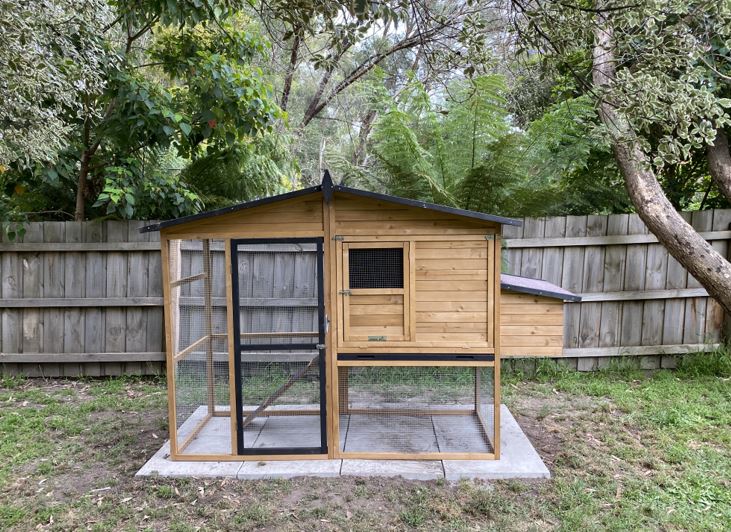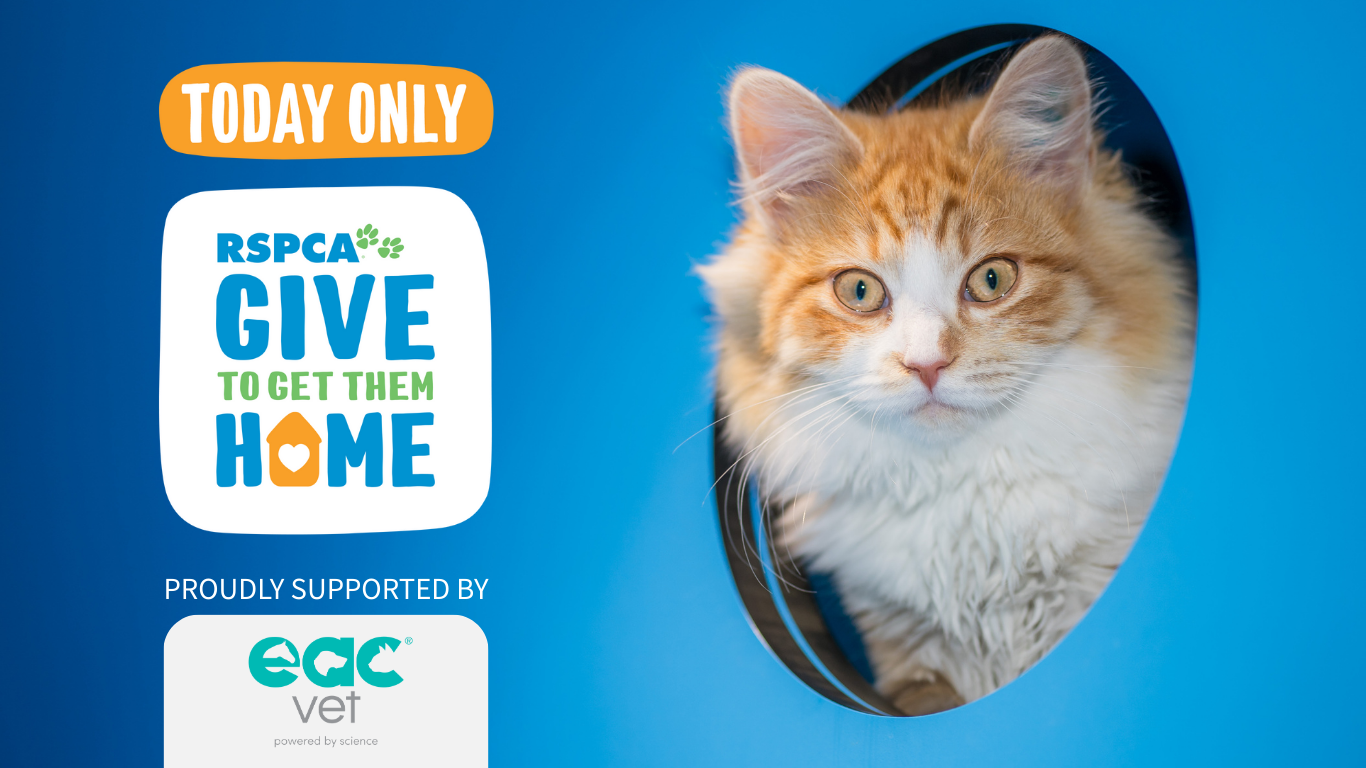By Dr Kate Mornement Ph.D, BSc(Hons)
In Part 1 of this blog series I discussed how to choose your backyard chickens. Once you’ve decided how many and what kind of backyard chickens to get, you’ll need to prepare a few things before you bring them home. Let’s look at what you’ll need to house and care for your backyard chooks.
HousingChickens need a safe place to roost during the night. Somewhere that’s protected from the elements. A coop or chicken tractor are good options depending on the size of your flock. It’s important that whatever shelter you choose is predator proof and, ideally, vermin proof too.
Foxes pose the biggest risk to backyard chooks and, to a lesser extend, domestic cats and dogs. Ensuring your coop is fully enclosed and sitting on a either a concrete slab, pavers or with a wire skirt around the edges, will help prevent predators digging under and keep your chooks safe.

This is our coop. We built it on a slab of concrete pavers to prevent foxes and rats/mice digging under. Our coop is suitable for up to 6 chickens if they also have access to a run or the garden.
Inside the coop you’ll need some bedding. Popular choices include wood shavings, hemp and straw, available from most large pet supply shops. These materials help to absorb droppings and provide a comfortable surface for the chickens to walk on. They can also be used as nesting material in the nesting boxes. You’ll also need some perches for the chickens to roost on.
Depending on the size of your coop, and whether you want your chickens to free range throughout your garden or not, a chicken run is a good addition. This is basically a fenced off space extending from the coop.
The run allows your chickens to have more space while keeping them safely separated from the rest of your garden and potentially your pets. The run can be a permanent fence or you can purchase chicken fencing that’s portable to allow you to change the location of the run. Just make sure the fence is tall enough to keep your chooks contained.

This is our chicken run which is a portable fence system designed specifically for chickens. The run provides our chooks with space to free range and allows us to keep them safely separated (mostly!) from our dog Lenny.
Food And WaterJust like all companion animals, chickens need constant access to fresh water. Multiple water sources are recommended in case one gets knocked over or soiled during the day. Chickens can easily mess their water with poop or by flicking straw or shavings inside the dish. There are a variety of feeders and waterers available for chickens so choose a size and design that works best for you and your flock.
When it comes to feeding your chooks, the general consensus is that a good quality pellet diet is a good start. There are pellets specifically formulated for the age of your chooks (e.g. chicks, growers or layers). In addition to pellets, you can supplement your chooks’ diet with a seed and grain mix (often called “scratch” or “mash”) and mealworms. Chickens that free range in the garden also consume a variety of insects and plant matter including grass (and your vegetable garden if they have access!).
Caring For Your ChickensIn terms of general care for your chickens it’s important to ensure they have plenty of fresh water and food available at all times. Bedding inside the coop should be cleaned regularly (usually every couple of weeks) depending on the size of the coop, how many chickens you have and how much time they spend outside the coop.
The food and water dishes should also be cleaned when needed. Chickens need access to the sun and shade as well as dirt or sand for bathing. Dirt bathing helps chickens to ward off mites and keeps their feathers in good condition. Chickens can suffer from parasite infestation just like pet cats and dogs and there are a number of chemical and natural products available to treat worms and mites.
Some chickens learn how to fly over fences and may need their wings clipped to help prevent this. An avian vet can do this procedure for you or you can learn how to do it yourself by watching YouTube videos from reputable experts or organisations.
Finally, if you notice anything of concern with any of your chicken’s physical appearance or behaviour, a check over by a vet is a good idea. Identifying and treating health issues early will help to ensure your chickens live a long and happy life.
By Dr Kate Mornement Ph.D, BSc(Hons)
Applied Animal Behaviourist & Consultant
Pets Behaving Badly – Solutions with Dr Kate
petsbehavingbadly.com.au





